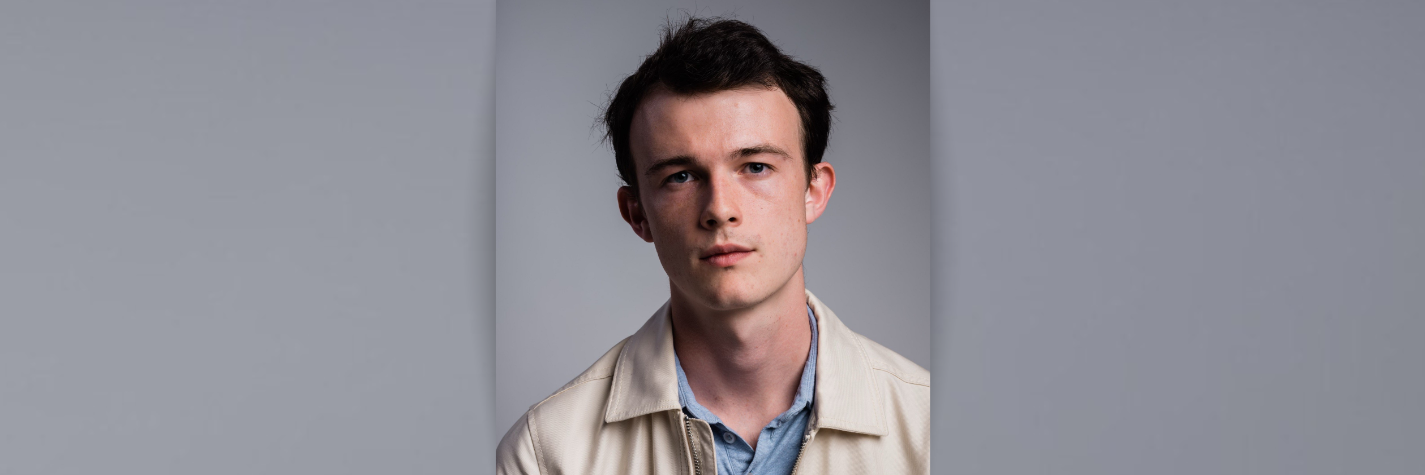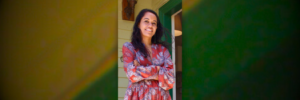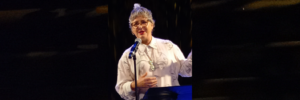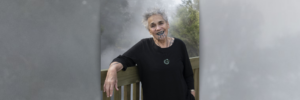
Josiah Morgan (he/him, Kāi Tahu, Ngāti Maniapoto) is a queer interdisciplinary creative from Ōtautahi. Josiah has been writing for several years and has been involved with performing arts nearly his entire life. His latest book i’m still growing brings his poetry into print in Aotearoa for the first time after publishing his first four books in the United States. His novella ‘Road: A Postlapsarian Comedy’ won the Macmillan Brown Writers’ Prize in 2021. Within Aotearoa, his work can be found in eel mag, NZ Poetry Yearbook, Out Here, Mayhem, The MAP and Aotearotica.
Congratulations e hoa on the launch of your pukapuka i’m still growing. Sometimes writers talk about their book as if it is something they’ve birthed – a struggle as well as a gift. If you were to think of your book this way, who are its whanaunga? Who helped you bring this book into the world?
Thank you! I’m so glad you asked this question. When crafting our book launch tour across Aotearoa, I was already thinking about the whakapapa of the book. I tried to record this by inviting the book’s whanaunga to read at my launches. Nathan Joe has been a committed advocate of my work in Aotearoa since we first met. Nathan Joe and Dominic Hoey are the reason this book exists in this form. But I also need to thank the wider Dead Bird whānau, especially my editor Liz Breslin, Isla Huia, Liam Jacobson and Laura Borrowdale, who showed me that it was possible to release a really weird book like this in Aotearoa.
In terms of artistic whanaunga, the work of essa may ranapiri, Tusiata Avia, David Howard and Dennis Cooper has been immensely influential.
What do you think your tīpuna would think of your book? What would their reactions be?
I believe my tīpuna would be challenged by the book, but appreciate its honesty and its simplistic approach to topics that are at times considered tapu.
What did it feel like the moment you found out your book would be published? How did the process differ from your previous books published in the United States?
I found out my book would be published over a mean yarn with Dominic Hoey at the WORD Christchurch Festival 2022, surrounded by other enthusiastic writers at a cocktail bar. We ended up sorting things out ‘officially’ a few weeks later. The excitement never shrinks. Now that people are reading the book, the excitement and nervousness are both growing again.
When my stuff was published in the United States, I was more hands-off, as I had very little control over the distribution process, events, the design of the book, and things like that. Here in Aotearoa, I was engaged in the entire process with Dead Bird Books, from cover design to page layout to designing the book launches themselves.
What books (or other art forms) influenced you while writing this book?
I am forever influenced by the bone people by Keri Hulme. The Dream Police by Dennis Cooper hangs over all of my work, and I am also always thinking about Gravity’s Rainbow by Thomas Pynchon and Ulysses by James Joyce. Recently, the work of Virginia Woolf has been permeating my process.
I also draw a lot from film. I’m interested in trying to capture in words something that has only previously been captured as an image.
What are your dreams for this book?
I hope that i’m still growing helps change minds about what poetry in Aotearoa might look like and can look like. It’s my dream that the book takes roots in the dreams of other poets, and can begin useful conversations about what it means to be a writer here and now. I dream that the book can speak both to my future and to my past.
What projects are you working on now or hope to be working on in the future?
I’m currently working on the second draft of a novel about the climate crisis, the mental health crisis, and policing in Aotearoa. The novel is set in an alternate crisis-ridden Christchurch in which teenagers at a local high school are afflicted by a suicide epidemic. Then they discover a new drug called ‘Lingo,’ which gives them the ability – or so they think – to speak to animals.
Which book by a Māori author have you read lately that you loved and what did you love about it?
I was blown away by fellow Kāi Tahu / Kāti Mamoe writer Ruby Solly’s The Artist, which captures the interplay between the macro and micro in glorious detail. Whilst the book itself is beautiful, it actually feels like an oral poem, in keeping with the oratory tradition of te ao Māori.
What advice do you have for emerging Māori writers?
Just write. Write for you. Write what you need to hear. Write every day. The rest will come. Read it out loud. Find a literary whānau out there if you can – attend the open mics, be brave and say hi to the authors you’re scared of, and learn from their whakaaro.




